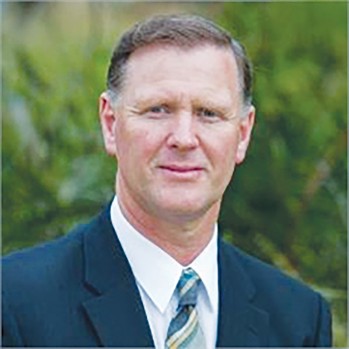
THE fallout from “bullying” allegations between Frankston councillors aired at last month’s council meeting continues to reverberate around council chambers.
Ill feeling between councillors has prompted Cr Glenn Aitken to write to Victorian Local Government Minister Natalie Hutchins seeking a change to the Local Government Act to “ensure a minimum level of input from councillors elected to office”.
At January’s council meeting Cr Aitken accused some councillors of trying to “freeload or piggyback on this city”, sparking angry exchanges between councillors and “bullying” accusations.
He was more circumspect at this month’s council meeting, aiming his criticisms at councils across Victoria rather than Frankston specifically.
“It is a fact that in a number of councils throughout the state there are people who perform and there are people who significantly underperform… that has to be dealt with or governed in some way or other.”
Cr Aitken put forward a notice of motion urging council to write to the minister investigate a possible change to the Local Government Act but it was narrowly defeated five-four on the night.
Crs Aitken, Brian Cunial, James Dooley and the mayor Sandra Mayer voted for the proposal. Crs Colin Hampton, Michael O’Reilly, Rebekah Spelman, Suzette Tayler and Darrel Taylor were opposed.
“I think councillors do put in the required amount. They work very hard and attend events [on weekends and evenings],” Cr Taylor said.
He said councillors “sacrifice a lot” including taking annual leave from their jobs to attend conferences and events.
“Councillors don’t need the big hand of government over the top of them to say ‘you’ll work x number of hours’ because that … crosses a line to being an employee and not just a community member who sticks their hand up and works hard for the community,” Cr Taylor said. “All councillors sacrifice a lot to give to our community.”
Cr Spelman said it is not up to councillors to “monitor” the amount of “input” other councillors make and it could not be policed or quantified in any case.
“It’s up to an individual councillor to do the best for our community,” she said.
Cr Hampton noted the Local Government Act already specifies a minimum number of ordinary public council meetings a councillor must attend.
At January’s council meeting, Cr Hampton said “there are councillors who aren’t turning up for briefings and it’s not just one. It’s two or three or four.”
Briefings are held so council staff can provide information and background on issues or projects to be debated and voted on at public council meetings.
Cr Hampton, like Cr Aitken, was more circumspect this month.
“Not everyone can turn up to every briefing… but they can be monitored,” he said.
Cr Tayler said “a lot of councillors also work full-time”.
“Any councillor elected gives 150 per cent and if they don’t our ratepayers will decide that at the next [council] election.
“Everyone is accountable for their own actions and I don’t think any other councillor should be worried about how a councillor conducts themselves by attending meetings.”
Cr O’Reilly told The Times last month there is often “intimidating behaviour at briefings” and “this causes people to not want to come to these briefings.”
The number of briefings councillors attend is listed in council agenda notes. Compulsory briefings attendance by councillors is not included in the Local Government Act.
The one thing all councillors could agree on was a decision to include the briefings attendance figures in council’s annual report in future. All nine unanimously voted to back the suggestion, made by Cr Hampton, at last Monday evening’s council meeting.
Despite toning down his comments compared to last month’s council meeting, Cr Aitken did fire a broadside at some of his fellow councillors before his notice of motion was narrowly defeated.
“There are people [at this civic centre] whose meetings attendance has been appalling,” he said.
“It’s really interesting that when this issue was raised … claims blossomed out into the press absolutely everywhere.”
